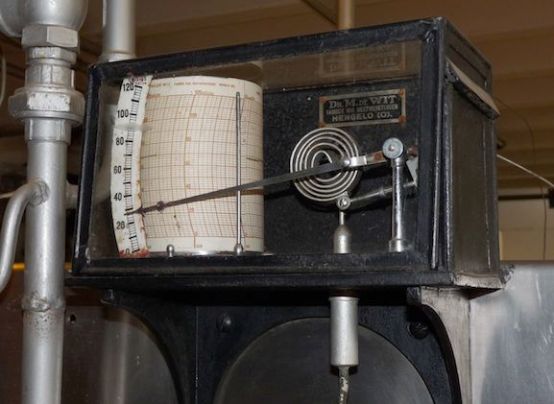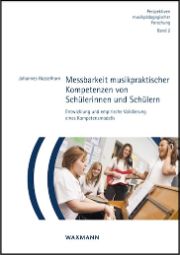Measuring practical music skills, yes - but how?
Johannes Hasselhorn develops and examines a model for this in his dissertation.

The measurability of musical performance is controversial among educators and yet it is carried out in many areas in "real life", just think of the numerous music competitions, casting shows or the tough selection procedures for university places and music positions. Hasselhorn rightly raises the question of the assessability of performance, which, in addition to the areas mentioned, must also be measured in secondary schools. In his studies, the author concentrates on practical music skills, thus excluding theoretical music lessons, which are already relevant for assessment. He also does not aim to develop an educational theory for the subject of music, but emphasizes that without clearly defined educational goals for music lessons, his meticulously derived and empirically tested competency model can only have limited validity.
In his project, which is supported by the German Research Foundation DFG, Hasselhorn uses the same concept of competence on which Curriculum 21 is based (Weinert, 2001). He sees "practical music competence" as "a necessary prerequisite for more complex music-related activities". Against this background, Hasselhorn first develops a theoretical model of competence. He examines existing models from the Anglo-Saxon world and compares these with the curricula of the German federal states at lower secondary level. He then condenses the findings into a three-dimensional structural model with the areas of music that apply to schools: Singing, instrumental music-making, rhythm production. He assigns three level-graded assessment scales to each dimension. He developed test items (tasks) in collaboration with experienced music teachers. A comprehensive technical set-up was required to record the measurement results.
The results for year 9 are characterized by an unexpected heterogeneity and show a discrepancy between the high curricular demands and the individual skills actually measured. However, music lessons in this country, which are based on collective results, are likely to achieve far more acceptable results than the measured individual skills would suggest, thanks to clever didactics. The test has "only one single task", but it fulfills this "in an excellent way (...) namely to separate the stronger from the weaker pupils objectively, reliably and validly".
Johannes Hasselhorn, Messbarkeit musikpraktischer Kompetenzen von Schülerinnen und Schülern, Entwicklung und empirische Validierung eines Kompetenzmodells, Perspektiven musikpädagogischer Forschung, Vol. 2, 196 p., € 29.90, Waxmann, Münster 2015, ISBN 978-3-8309-3294-9








